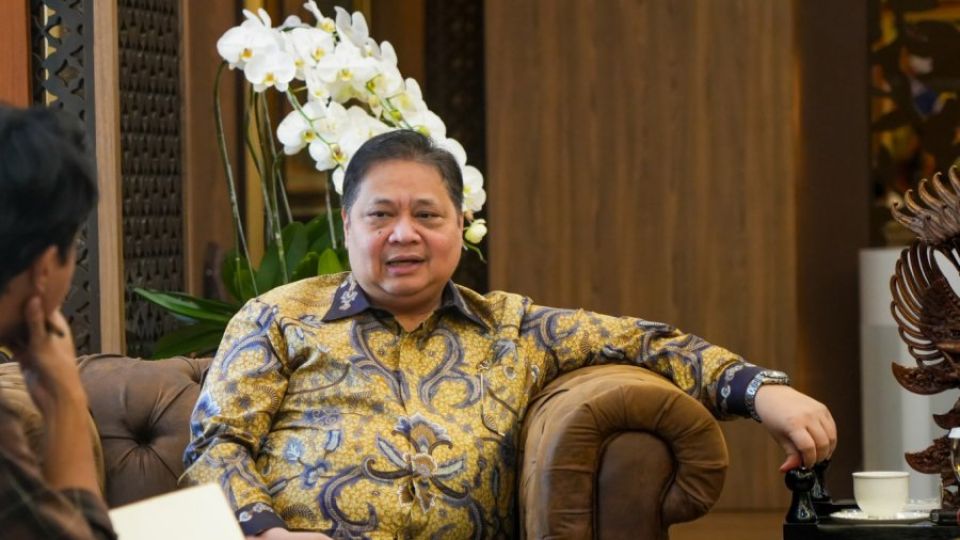January 23, 2025
JAKARTA – The government will require natural resource exporters to keep their entire export receipts (DHE) onshore for a year, Coordinating Economic Minister Airlangga Hartarto said on Tuesday.
Airlangga told reporters at his office that President Prabowo Subianto has “greenlit” the new arrangements and the government would soon introduce an implementing regulation.
Under prevailing stipulations, exporters with over US$250,000 in foreign exchange earnings will be required to deposit at least 30 percent of their export revenue in Indonesian banks for a minimum of three months. This applies to companies in the mining, plantations, forestry and fisheries sectors.
Airlangga said that according to the new stipulation, exporters with over $250,000 in foreign exchange earnings will need to deposit 100 percent of their foreign exchange earnings for at least one year.
Read also: Businesses fret over extended export earnings lockup
The minister went on to say that the new arrangement might bring in $90 billion in potential foreign exchange reserves. Bank Indonesia (BI) data showed on Jan. 8 that December’s foreign exchange reserves hovered at $155.72 billion, which marked a historic high.
Separately, Airlangga told reporters in the State Palace complex on Tuesday the new regulation would include new sectors on top of the four that were mandated under existing stipulations, but he did not divulge what new sectors would be incorporated.
Asked if the new arrangement faced any opposition, Airlangga replied with: “None, we have communicated with all the stakeholders”.
Under the new regulation, the government will still allow export receipts stored in Indonesia to be used for paying taxes and covering operation costs, which Airlangga said was one of the incentives rolled out with the regulation. Moreover, exporters can use the stored export receipts as collateral for credit in rupiah and for currency swaps, should exporters need some rupiah in their accounts.
The government also offered zero tax rates on export receipts held in country, whereas typical time deposits were taxed around 20 percent.
Under the prevailing arrangement, any exporter failing to comply with the deposit regulation can be barred from obtaining export permits.
Customs and Excise Office official Chotibul Umam revealed on Jan. 4 that the government had blocked as many as 176 exporters for failing to comply, 77 of which ultimately sorted the issue, according to CNBC Indonesia.
Read also: New export receipt rules ‘mostly good’ but must not hamper cashflow
Indonesian Employers Association (Apindo) chairwoman Shinta Kamdani said in a statement on Tuesday that businesses hope the government will reconsider implementing the new export receipt arrangement, saying it would create a domino effect in many business sectors.
Separately, Shinta told The Jakarta Post on Jan. 14 that she understood what the government was trying to achieve, but said the policy had to take into account the “significant challenges” exporters will face.
“[It] often takes a long time for a company to receive the export receipts. With the DHE locked up for 12 months, exporters will struggle to finance the next production cycle, given that the [export earnings] must be deposited for a long time,” said Shinta.
Shinta suggested that the government consider a “more flexible mechanism” in its implementation, such as by excluding companies with liquidity problems or urgent operational needs, or at least by reducing the required percentage of earnings held in the country.
Shinta also bemoaned the fact that the government set the DHE deposit interest rate at only around 5 percent, which was far lower than bank loan rates of around 7 to 8 percent.
Private lender Bank Danamon economist Hosianna Evalita Situmorang said in a statement on Tuesday that she expects the new export receipt arrangement to help improve the foreign exchange reserves and the rupiah exchange rate against the United States dollar.
All in turn will help improve overall economic stability and could also translate into increased investor confidence.


